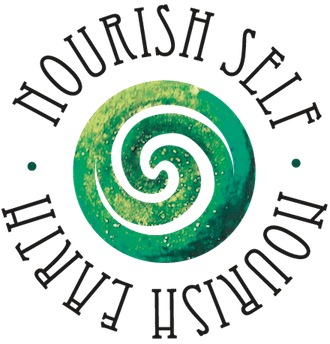Ashwagandha: Honoring the Call for Deep Rest
In our Western health management model, the metaphor for the body is The Machine. In Eastern holistic medicine, the metaphor for the body is The Garden. With this I am starting this newsletter with an image I used last winter as well, since my garden buried under snow is the best image for conveying just what Deep Rest means. For a garden to stay healthy and produce lots of vegetables throughout the season, they need months of non-doing.
Disclaimer: To do justice to the topic of exhaustion I would need to write a short book. In no way have I meant to diminish or simplify the reasons for the serious and chronic illnesses many are experiencing in these times.
There is an epidemic of exhaustion in our culture. Many of you can likely relate to this…the deep tiredness in your blood and bones…or the wired but tired feeling of your nervous system, which is beyond tired and just can’t settle down to rest.
Almost every person who comes to me for a consultation speaks of feeling exhausted…it’s typically the first thing they mention. The feeling I experience beneath their words is that it is all too much—the very, very strong culturally conditioned drive to always be doing, to always be working, to saturate ourselves with news and social media (where we receive more news in ten minutes than our ancestors would receive in an entire lifetime), the denatured foods, addictions to technologies, emotional exhaustion….the experience of not being enough and then trying to be enough by doing more, and showing up for everyone but ourselves, or attempting to fill the not enoughness by consuming more and more and more…It’s all too much.
I listen beneath the words of my clients and feel their body’s longing for deep rest and nourishment. I feel this and I begin to speak carefully. There is often a lot of grief that arises when I begin to speak for their body. I remember once working with a client who was very depressed and exhausted and during our first session she talked about all the physical and emotional concerns she was experiencing. When she returned a few days later for the session where I offer a holistic health protocol, the first thing I suggested was that she turn off all the news, both mainstream media and social media and start taking daily walks in open awareness with Nature. She hadn’t mentioned her addiction to the media in our first session and having me name it broke her open. In this crack the light of awareness started to come in as to the true source of her depression and exhaustion. With this, the beginning of a path of healing was illuminated.
I share this story as an introduction to writing about Ashwagandha and the call to honor the need for deep rest, because our conditioning in Western health management has trained us to take a pill for whatever ails us. Therefore often when people want to adopt a more natural approach to addressing their health concerns they do so allopathically, which translates into taking this herb for that symptom. Because of this mindset there is a current rage around plants known as adaptogens, such as Ashwagandha, to address exhaustion and using them with the expectation that they offer free energy.
“The Wise know when to stop. ”
Many times when people come to me with exhaustion they are already taking Ashwagandha under the mistaken belief that their exhaustion is due to adrenal burnout and that this herb can build one’s adrenals. This misuse of adaptogens can actually make the experience of burnout worse because one may experience more energy at a time when their body is actually saying “STOP!”
Not only can this approach cause harm, it violates the wisdom and healing plants can offer us. In my experience plants require something from us. They require that we honestly evaluate our lives and our lifestyles and make the changes necessary so that the plants have a foundation to build upon. In the case of exhaustion we need to address what is underlying the exhaustion, remove whatever is causing harm and then make the necessary dietary and lifestyle changes, with added support from medicinal plants.
In Traditional Chinese Medicine, Ashwagandha is considered to be a “chi tonic” with the unique properties of restoring and rejuvenating one’s body by providing energy through nourishing and replenishing one’s vital reserves while simultaneously calming the stress response (sympathetic nervous system). When one experiences a strengthening of vital reserves the wired feeling is calmed and one can begin to experience deep rest. In Ayurveda this action is referred to as increasing ojas–the deepest reservoir of vital essence centered in one’s being.
In my personal experience I have found that simply by being in the Presence of Ashwaghandha and experiencing their spirit in my garden, as well as handling their roots as I harvest them, that I’m aware of a deep inner calm that feels like I’m connected to a deep wellspring within my core…a sense of my own vitality and deep reserves of energy. Additionally, years ago, to address an intense bout of insomnia, I began adding Ashwagandha to my daily herbal and sleep protocol and discovered how this plant helps to regulate the sleep cycle.
I wish you could smell these roots...the combination of "smell of the horse" with damp soil was quite a sensory experience!
Before I began growing Ashwagandha in my garden I would buy the powdered root from the Ayurvedic company Banyan Botanicals. It was only after I prepared my own root powder that I understood why Ashwagandha means “smell of the horse,” and that this scent was absent from the powder I bought from the herb company. Now I take less powder when I use my own because of the quality and feel how the pungent/sweet/earthy tastes helps to balance my vata constitution and tendencies towards a wired nervous system.
“The Ancient yogis say the Body as the Temple and every function and feature of the Body as an expression of divinity. Perhaps you can create an altar or a shrine in your backyard to honor the divinity of your body in relationship with Nature, as Nature. ”
Something that is important to keep in mind regarding this topic of exhaustion is that despite how fast the world is going, our bodies are Nature and we still have the same “design” as our primitive ancestors. Our nervous systems are designed to vacillate between the sympathetic/stress response and the parasympathetic rest and digest response. Instead as a culture we are in a nearly constant state of sympathetic excess aka “fight, flight or flee” which keeps us hypervigilant, depletes our energy reserves, turns off our digestion and keeps us awake at night. Combining this with the constant drive to work and consume we literally wear out our bodies and sadly often we don’t know that we are on this trajectory until we are confronted with a serious illness.
Remembering ourselves as Nature we feel best when our rhythms are aligned with the seasons and the cycles of the days and when we bring in practices that drop our nervous system into a parasympathetic state. This winter I invite you to experiment with honoring the soft animal of your body and their need for deep rest. One suggestion is to plan a day where you refrain from turning on the lights and using any technologies such as your phone or computer. Perhaps you can make your meals, such as a warm nourishing soup or stew, the day before and eat by candlelight…follow this with a warm decoction of ashwagandha root simmered in milk (or nondairy mylk) with a bit of honey. Afterwards lie down in a restorative yoga pose such as Mountain Brook, in a place where you can see the night sky…placing one hand on your heart and the other on your navel and repeatedly whispering “it’s okay to release and let go”. Lie here and simply watch the moon and stars and breathe as you relax and then move to your bed to drift off to sleep. In the morning refrain from using an alarm clock and let yourself stay in bed until you feel the impulse to rise. Start with this and journal about your experience. I’d love to hear what you discover.
Stop doing and let yourself Be. To paraphrase my friend Foa Kinfyre: In our culture, choosing to rest is a revolutionary act!
Caring for the Medicine
By Claire Nelson
I showed up to Night Raven Garden one morning to find Constance tending to Ashwagandha plants by using clippers to cut off leaves and branchlets where tiny snails were feeling at home, resting, and eating some of the leaves. They left many holes in these plants and piles of poop. Constance shared with me that Ashwagandha plants communicated in their own way that they were not receiving enough water which created stress for this plant and the lack of full strength to deter creatures away. Even amidst such an overwhelming experience, and not to mention it was quite gross to remove the piles of poop, I knew this was a harmonious and necessary approach for our health and all the health of all beings who lived inside and around this garden sanctuary, and I joined her.
Our offering was time, patience, and being present with Ashwagandha and Constance spent a considerable amount more time after I left. She shared a truth with lightness that “this is all part of organic gardening”. I sincerely thanked her for not using any pesticides or chemicals and for her dedication, care, and relationship she had with this garden oasis.
After Constance removed the creatures, she gave Ashwagandha a great drink of nourishing water and vermi-compost tea and for the rest of the season she made sure they received plenty of water.
All her care and tending to these plants made a significant difference! Ashwagandha responded with resiliency and a state of thriving once again which was quite miraculous. Later in the season they shared their amazing medicine and gifts with us as we harvested their roots on a brisk autumn day.
~ Ashwagandha Song ~
Created Thursday, Nov. 2, 2023 while tending to Night Raven Garden. Song inspired after harvesting Ashwagandha Roots with Constance for her to create herbal medicine as well as, sharing and teaching me about Ashwagandha’s gifts.
~ thank you for your medicine, your medicine, your medicine
~ thank you for your medicine and for being you
~ your medicine reminds us the importance of deep rest
~ and when we listen to our natural rhythms, we may feel our best
Constance and Claire digging up Ashwagandha roots on a brisk and sunny day in November.





